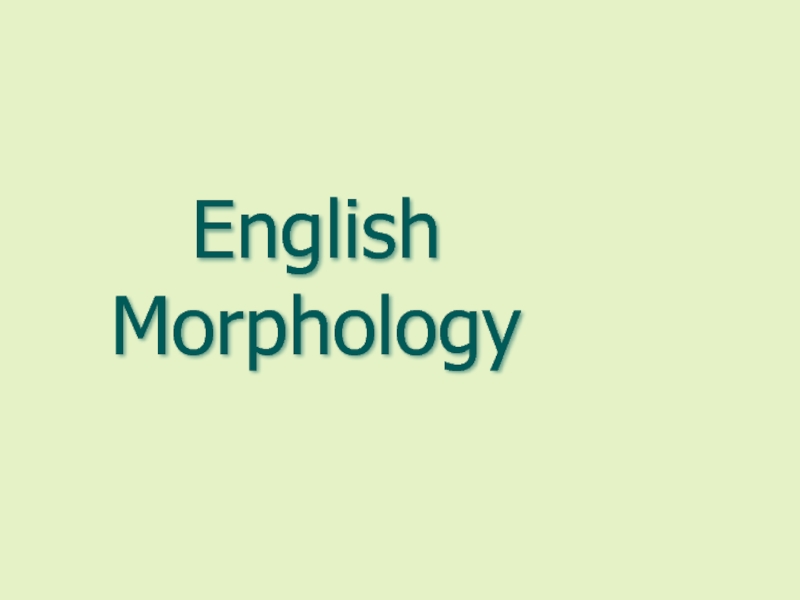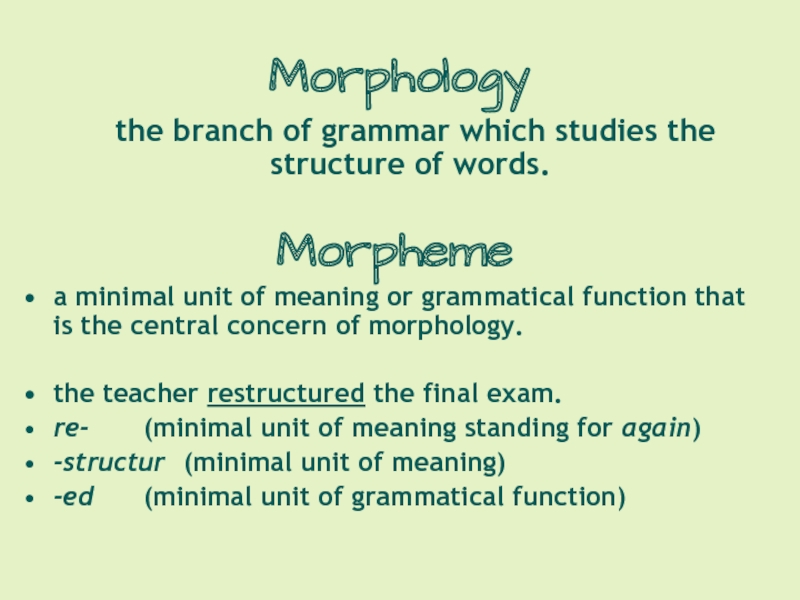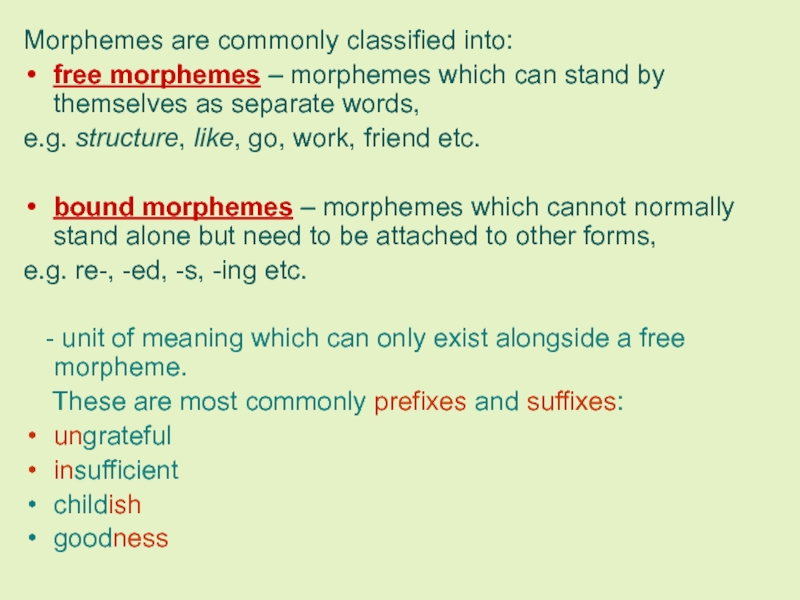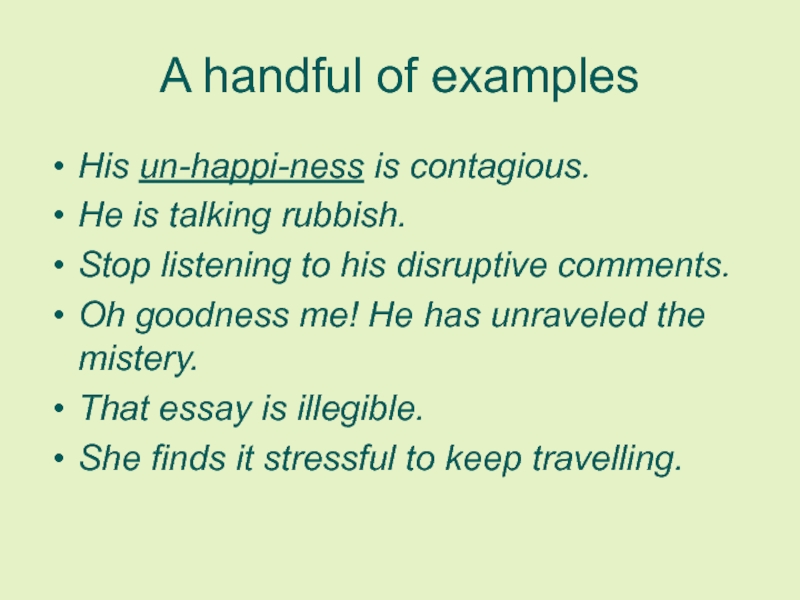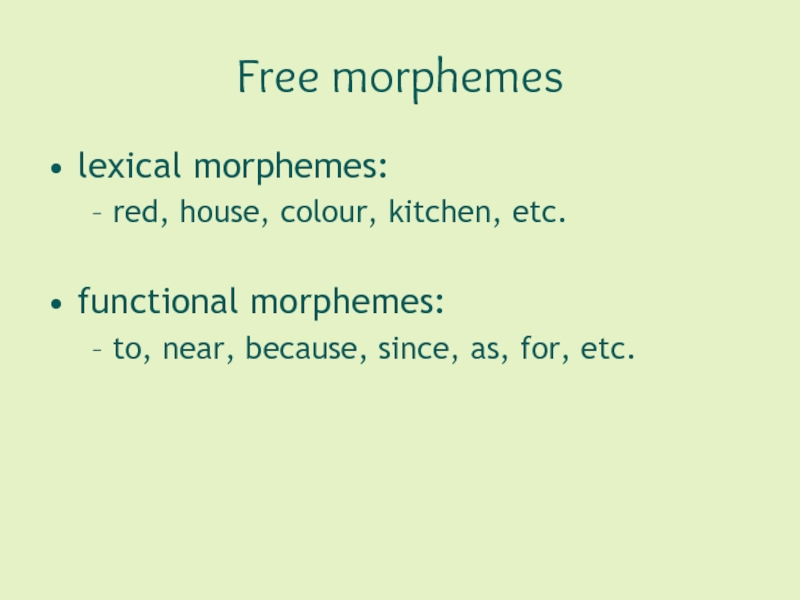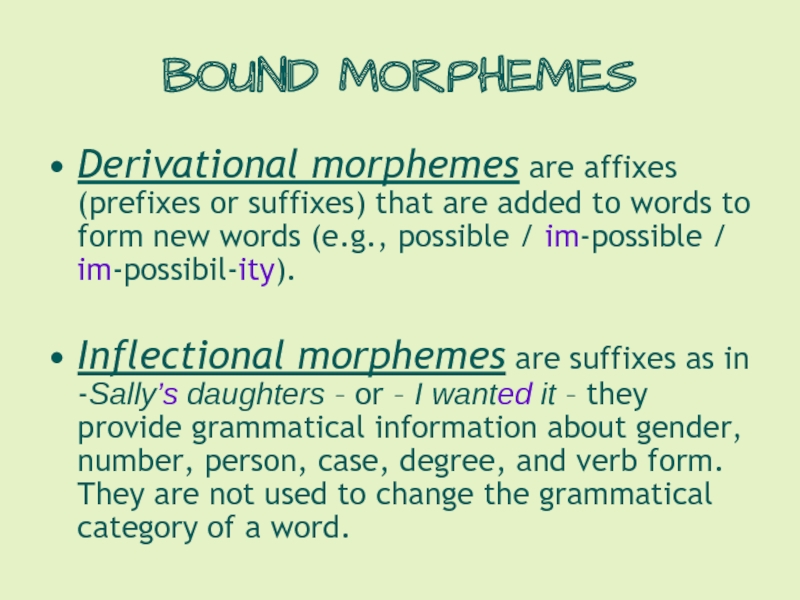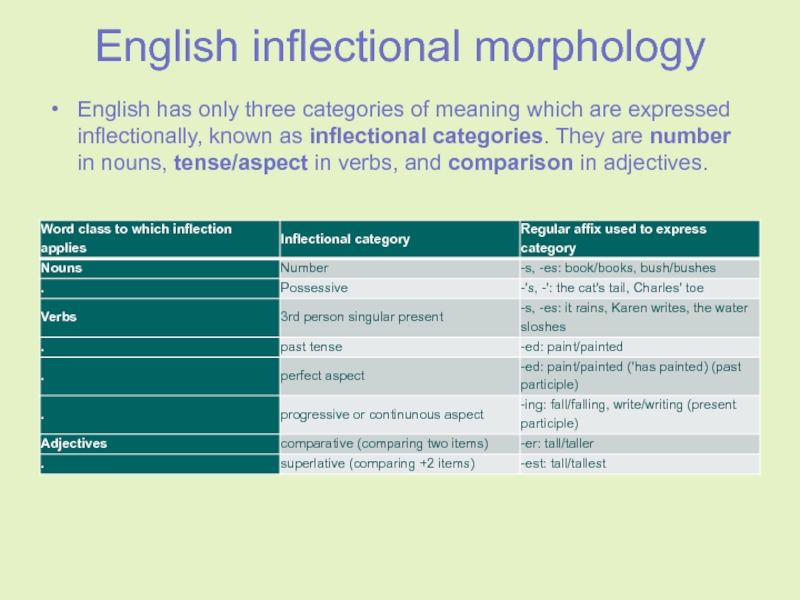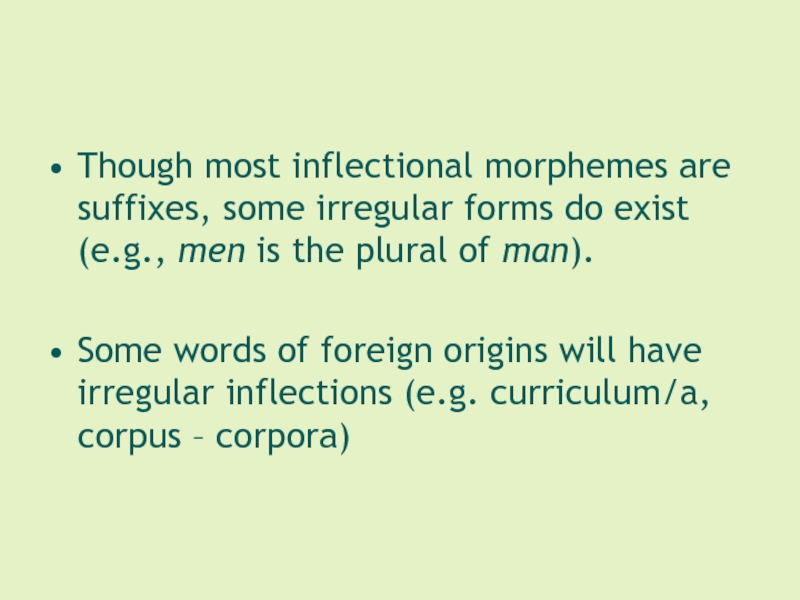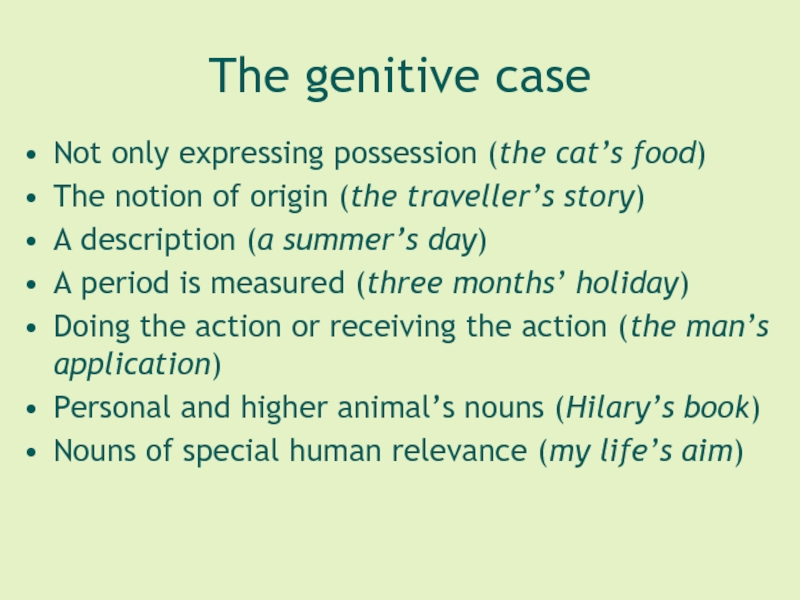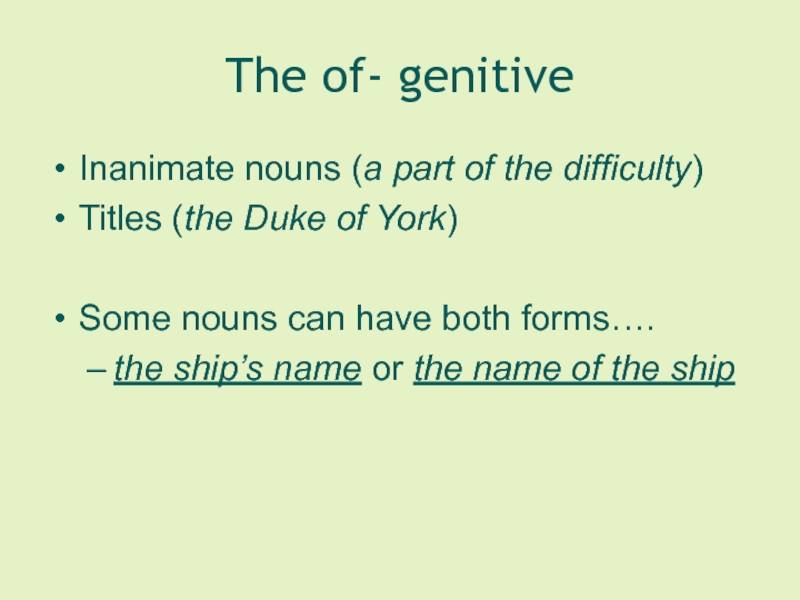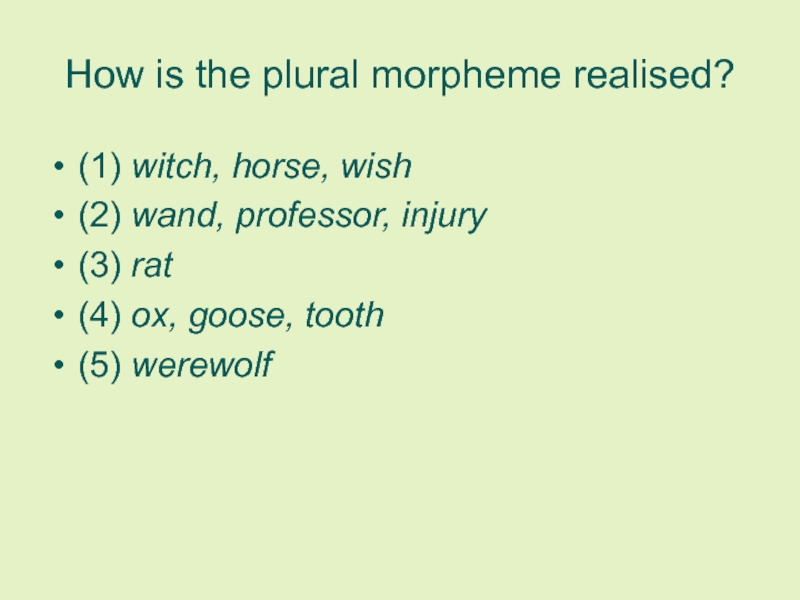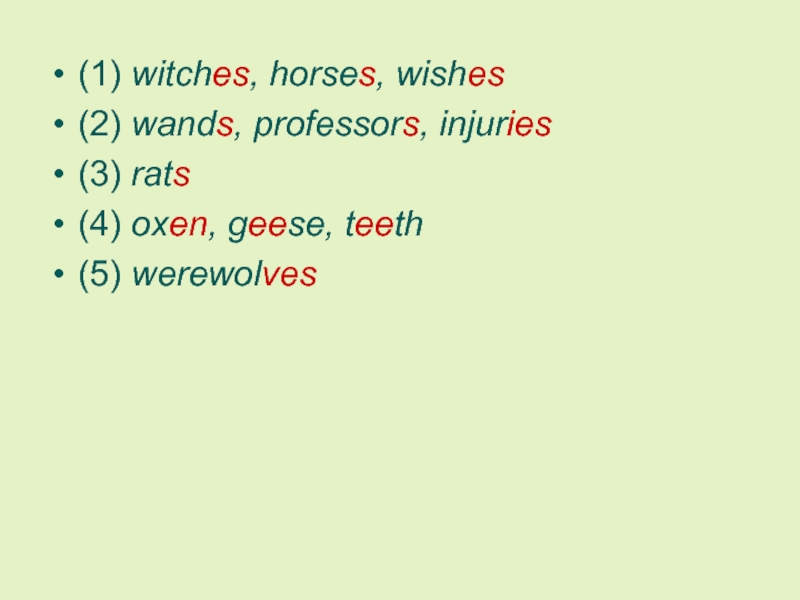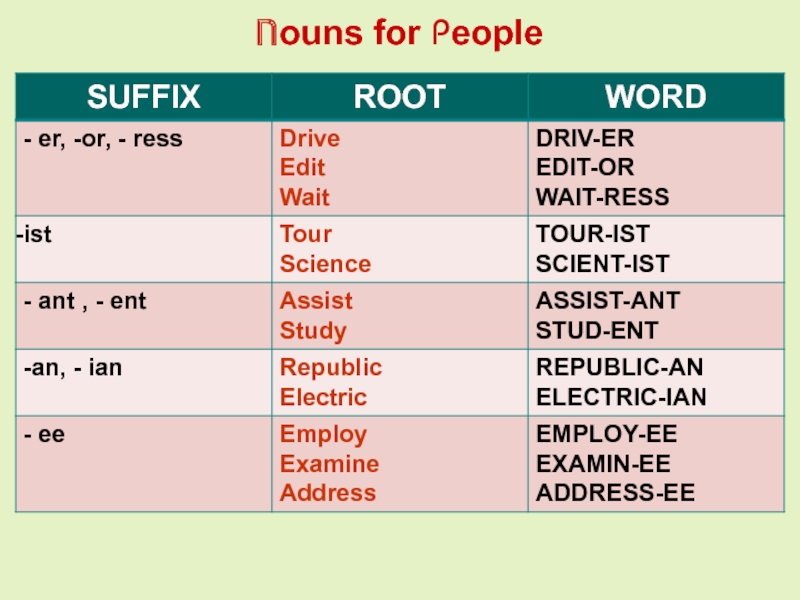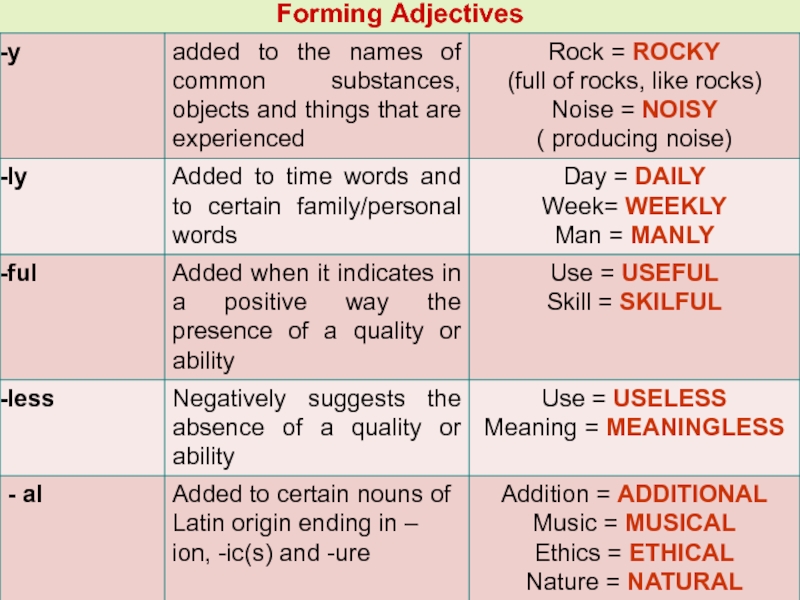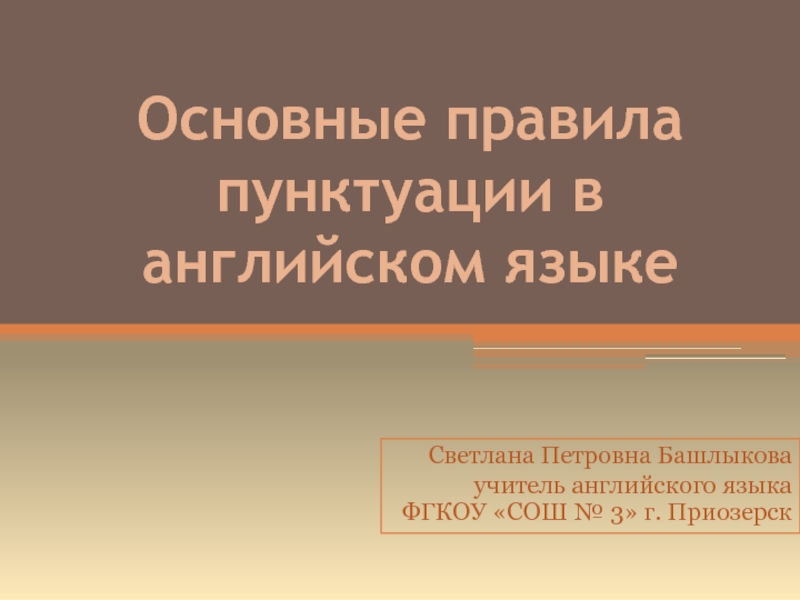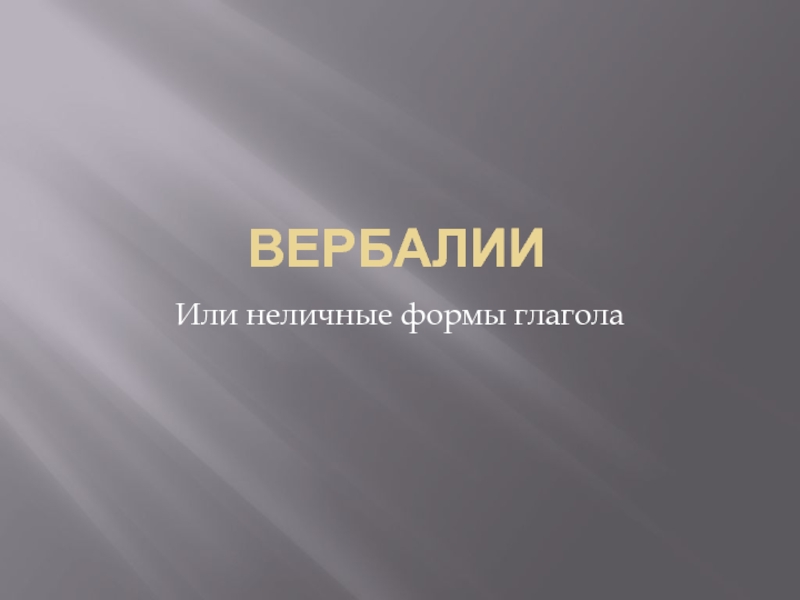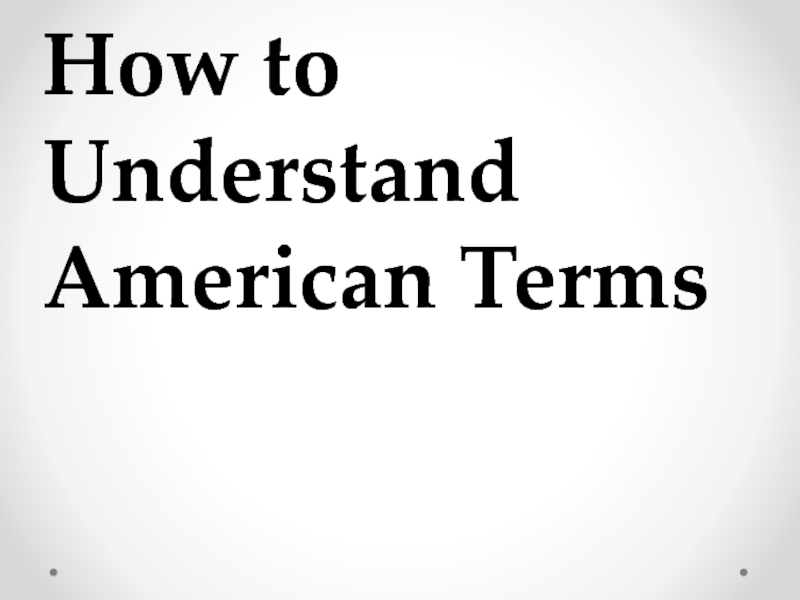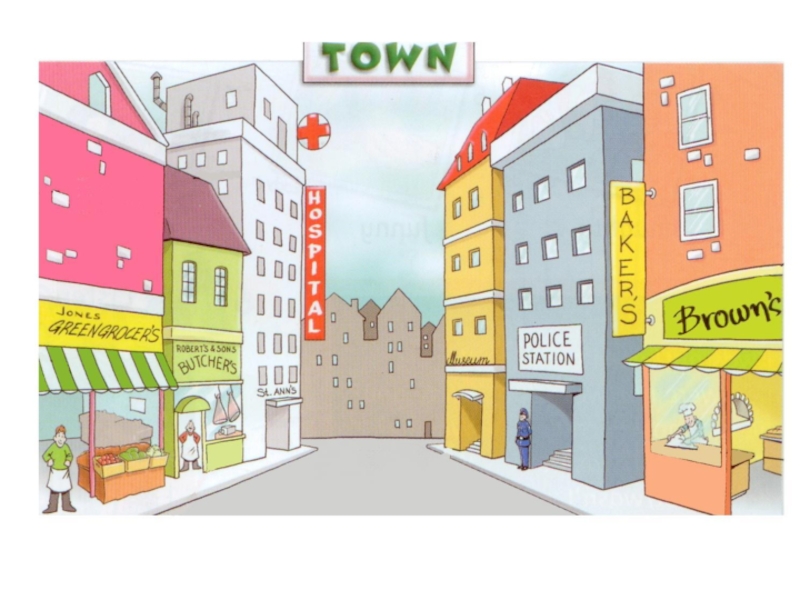- Главная
- Разное
- Дизайн
- Бизнес и предпринимательство
- Аналитика
- Образование
- Развлечения
- Красота и здоровье
- Финансы
- Государство
- Путешествия
- Спорт
- Недвижимость
- Армия
- Графика
- Культурология
- Еда и кулинария
- Лингвистика
- Английский язык
- Астрономия
- Алгебра
- Биология
- География
- Детские презентации
- Информатика
- История
- Литература
- Маркетинг
- Математика
- Медицина
- Менеджмент
- Музыка
- МХК
- Немецкий язык
- ОБЖ
- Обществознание
- Окружающий мир
- Педагогика
- Русский язык
- Технология
- Физика
- Философия
- Химия
- Шаблоны, картинки для презентаций
- Экология
- Экономика
- Юриспруденция
English Morphology презентация
Содержание
- 1. English Morphology
- 2. Morphology the branch of grammar which studies
- 3. Morphemes are commonly classified into: free morphemes
- 4. A handful of examples His un-happi-ness is
- 5. Free morphemes lexical morphemes: red, house, colour,
- 6. BOUND MORPHEMES Derivational morphemes are affixes (prefixes
- 7. English inflectional morphology English has
- 8. Though most inflectional morphemes are suffixes, some
- 9. The genitive case Not only expressing possession
- 10. The of- genitive Inanimate nouns (a part
- 11. How is the plural morpheme realised? (1)
- 12. (1) witches, horses, wishes (2) wands, professors,
- 13. Nouns for People
- 14. Forming Adjectives
Слайд 2Morphology
the branch of grammar which studies the structure of words.
Morpheme
a
minimal unit of meaning or grammatical function that is the central concern of morphology.
the teacher restructured the final exam.
re- (minimal unit of meaning standing for again)
-structur (minimal unit of meaning)
-ed (minimal unit of grammatical function)
the teacher restructured the final exam.
re- (minimal unit of meaning standing for again)
-structur (minimal unit of meaning)
-ed (minimal unit of grammatical function)
Слайд 3Morphemes are commonly classified into:
free morphemes – morphemes which can stand
by themselves as separate words,
e.g. structure, like, go, work, friend etc.
bound morphemes – morphemes which cannot normally stand alone but need to be attached to other forms,
e.g. re-, -ed, -s, -ing etc.
- unit of meaning which can only exist alongside a free morpheme.
These are most commonly prefixes and suffixes:
ungrateful
insufficient
childish
goodness
e.g. structure, like, go, work, friend etc.
bound morphemes – morphemes which cannot normally stand alone but need to be attached to other forms,
e.g. re-, -ed, -s, -ing etc.
- unit of meaning which can only exist alongside a free morpheme.
These are most commonly prefixes and suffixes:
ungrateful
insufficient
childish
goodness
Слайд 4A handful of examples
His un-happi-ness is contagious.
He is talking rubbish.
Stop listening
to his disruptive comments.
Oh goodness me! He has unraveled the mistery.
That essay is illegible.
She finds it stressful to keep travelling.
Oh goodness me! He has unraveled the mistery.
That essay is illegible.
She finds it stressful to keep travelling.
Слайд 5Free morphemes
lexical morphemes:
red, house, colour, kitchen, etc.
functional morphemes:
to, near, because, since,
as, for, etc.
Слайд 6BOUND MORPHEMES
Derivational morphemes are affixes (prefixes or suffixes) that are added
to words to form new words (e.g., possible / im-possible / im-possibil-ity).
Inflectional morphemes are suffixes as in -Sally’s daughters – or – I wanted it – they provide grammatical information about gender, number, person, case, degree, and verb form. They are not used to change the grammatical category of a word.
Inflectional morphemes are suffixes as in -Sally’s daughters – or – I wanted it – they provide grammatical information about gender, number, person, case, degree, and verb form. They are not used to change the grammatical category of a word.
Слайд 7English inflectional morphology
English has only three categories of meaning which
are expressed inflectionally, known as inflectional categories. They are number in nouns, tense/aspect in verbs, and comparison in adjectives.
Слайд 8Though most inflectional morphemes are suffixes, some irregular forms do exist
(e.g., men is the plural of man).
Some words of foreign origins will have irregular inflections (e.g. curriculum/a, corpus – corpora)
Some words of foreign origins will have irregular inflections (e.g. curriculum/a, corpus – corpora)
Слайд 9The genitive case
Not only expressing possession (the cat’s food)
The notion of
origin (the traveller’s story)
A description (a summer’s day)
A period is measured (three months’ holiday)
Doing the action or receiving the action (the man’s application)
Personal and higher animal’s nouns (Hilary’s book)
Nouns of special human relevance (my life’s aim)
A description (a summer’s day)
A period is measured (three months’ holiday)
Doing the action or receiving the action (the man’s application)
Personal and higher animal’s nouns (Hilary’s book)
Nouns of special human relevance (my life’s aim)
Слайд 10The of- genitive
Inanimate nouns (a part of the difficulty)
Titles (the Duke
of York)
Some nouns can have both forms….
the ship’s name or the name of the ship
Some nouns can have both forms….
the ship’s name or the name of the ship
Слайд 11How is the plural morpheme realised?
(1) witch, horse, wish
(2) wand, professor,
injury
(3) rat
(4) ox, goose, tooth
(5) werewolf
(3) rat
(4) ox, goose, tooth
(5) werewolf
Слайд 12(1) witches, horses, wishes
(2) wands, professors, injuries
(3) rats
(4) oxen, geese, teeth
(5)
werewolves
